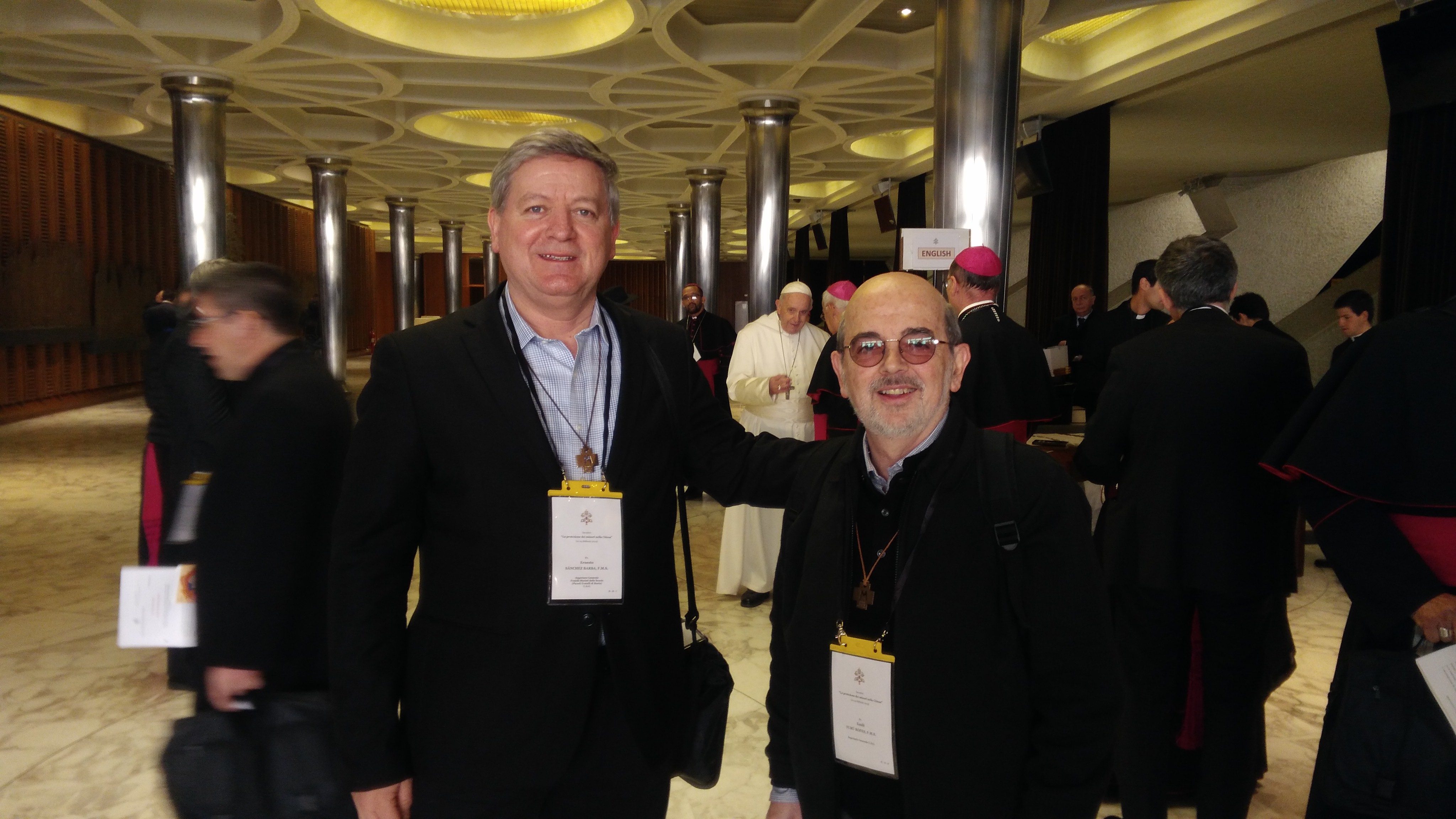
?Always and in every case the victims must have priority?
Br. Emili Turú, Former Superior General of the Institute, took part in the Meeting held in the Vatican, from the 21st to the 24th of February, concerning the protection of children. He was invited in his capacity as general secretary of the Union of General Superiors, together with a number of Superiors and General Superiors, representing more than 800.000 nuns and religious from all over the world.
At the end of the convocation in the Vatican, Brother Emili shares his impressions with us.
First impressions?
The meeting was very well prepared, with very high-quality interventions. The people who were invited to share their thoughts came from every continent and, the great majority, were of a critical mindset. In the Synod room we heard very strong and brave interventions.
I remember that in 2009 I took part in a meeting organized by the Gregorian University together with the Holy See and to which were invited a good number of bishops from all over the world. 10 years later I believe that things have improved: it has gained much in sensibility, in understanding the extent of the phenomenon of sexual abuse, as well as in transparency and in establishing mechanisms of accountability.
Something in particular that caught your attention?
I am always greatly moved by the stories of the victims and survivors. Their voices were listened to throughout the meeting, someon tape, others in person. The tragedy through which they have lived reminds us, unequivocally, that always and in every case, they must have priority, and not the person or the institution involved in abuse.
Their voices called out, somehow, saying "never again" and claiming safe spaces for the children, beginning with the Church.
Some people who suffered abuse were very disappointed by the meeting…
They have every reason to demand that the hierarchy of the Church should take this topic seriously and that it should act with decision and with very concrete measures. And I understand that some people had expectations that have not been met. Others, however, maybe because at the beginning they did not expect much from the meeting, say that it has exceeded their expectations.
And what do you think of the meeting?
I believe that it addressed the objectives that had been suggested from the beginning. It is a further step, neither the first nor the last, in the battle to eradicate sexual abuse, to use the strength and knowledge of the Church, and to commit ourselves in the defence of the rights of children.
The reality of the Church is very diverse, as I have been able to see in the working groups. And if promoting a culture change in any human group is an enormous task, it is the same with the Church. The bigger and more diverse the group, the more complicated the culture change.
And also, I clearly saw that the Pope wants to use all the means within his reach, in order that change is carried out, and soon. And he has wanted to do it in a collegial way, calling on the presidents of the Episcopal Conferences and religious representatives.
Some people said that this meeting has meant a point of no return on how to prevent and to treat the topic of abuse in the Church. I believe that this was already undertaken some years ago and this meeting is a confirmation of it.
Do you believe that there is still some resistance?
I believe that some bishops – it seems to me a very few – reflect, in a dogmatic way on what happens in their cultures of origin, either denying that the abuse of children takes place in their countries or thinking that "their dirty linen should be washed at home". But I find that the great majority are acutely aware of the problem as a social and universal problem, and that it is necessary to implement every possible means to prevent and to either solve in a fair way cases of the past or situations that could take place at the present time.
In principle, then, strong agreements. But then, when we move on to the concrete, this is where I still find that there is some resistance. For example, on the topic of transparency, when Cardinal Marx or the journalist Valentina Alazraki spoke,they seemed to hesitate…
There is resistance, often unconscious, but progress is being made. It will take time to discover all the consequences of the three words centring on the meeting: responsibility, accountability and transparency, but I did see the will to move forward, beginning with the Pope.
And the religious?
At the end of May, in the next Assembly of the Union of General Superiors, we will deal with this topic, following on this meeting which has just finished, to continue walking together, as we said in our recent Declaration, and to make our contribution to the eradication of this social plague.
I believe that many Congregations have had their protection protocols and campaigns of prevention for years, but we want to study what type of answer we can give to the strong call of the Pope as he concluded the meeting.
